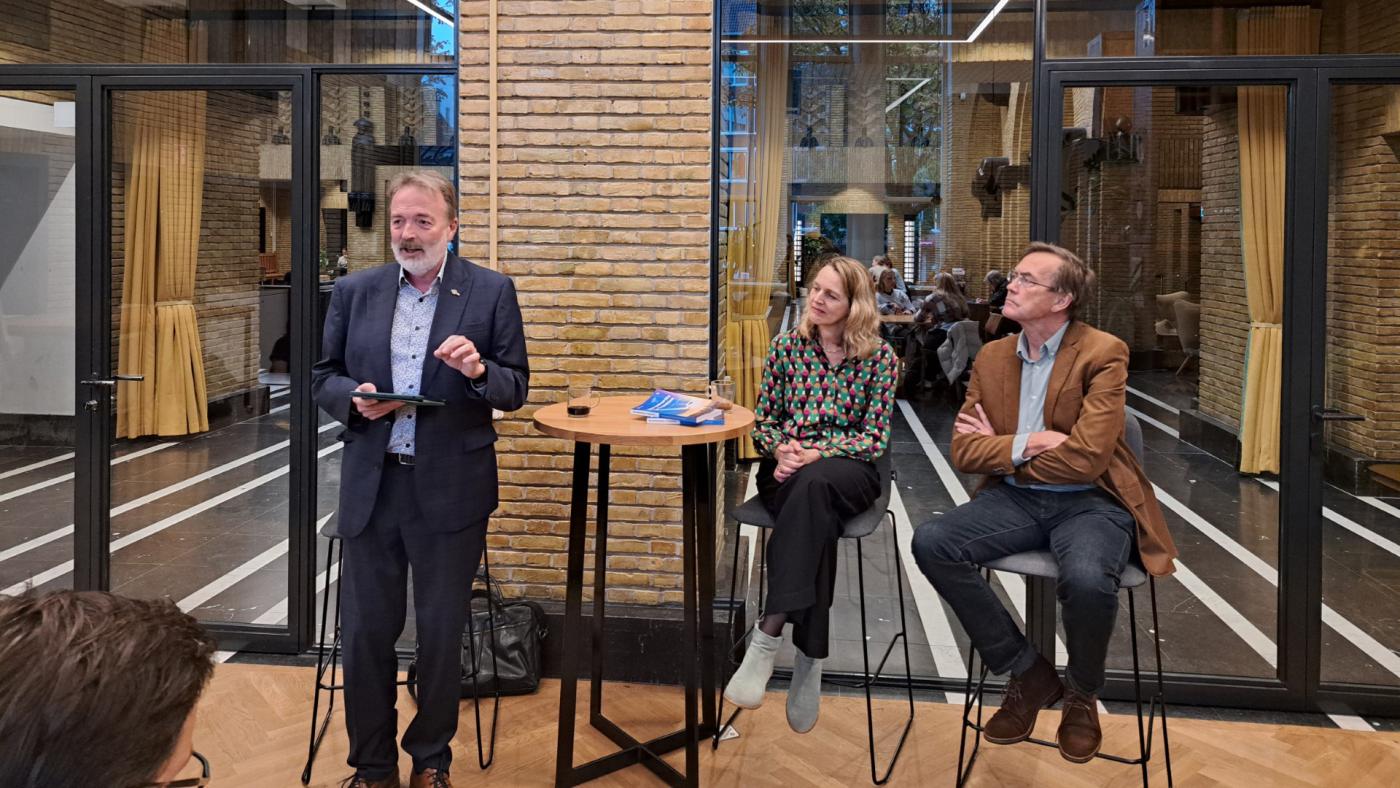University should interact more with society
'Science is a contact sport'

Pro-Palestine demonstrators stood in front of the Public Library at Neude last Monday morning. They were there to address Rector Henk Kummeling about UU's collaboration with Israeli universities. Kummeling had come to the library to participate in a debate about the relationship between the university and society. This is an important topic in the book The University in Transition, which the rector co-wrote with the Vice-Rector for Education, Manon Kluijtmans, and the former Vice-Rector for Research, Frank Miedema. They were at the library too.
The event took place in the House of Active Citizenship, which is housed in the library. It was organised by employees of the Faculty of Humanities who are involved in the national sector plan on Prosperity, Participation and Citizenship in a Digital Society, which investigates how education can strengthen academia's bond with society and how the university can make students aware of their duty to give back to society.
Advice
"Universities are much more likely to publish articles about citizens but they hardly ever engage in conversations with the people they research is about," stated Teun Gautier, from the House of Active Citizenship. "Take a recent study by the Scientific Council for Government Policy (WRR) about the fact that citizens don't feel in control of their lives. That study is full of advice from experts, but not a single citizen was spoken to."
He advocates for scientists and citizens to be more in touch. This could be achieved by directly involving people in research. According to Henk Kummeling and Manon Kluijtmans, Gautier touched on the core of their book. The authors also want the university to no longer operate from an ivory tower but rather establish direct contact with the people living in the city where the university is located.
Kummeling said that scientists have been visiting libraries and community centres more often to talk to people. They are doing this not only to provide people with information but also to learn what citizens are concerned about and what they think about certain issues. According to the rector, this interaction can help scientists choose research topics. Kluijtmans added that education should tackle problems in the neighbourhood more often.
Social challenge
To achieve this, we must change the way we think about research and education. According to the authors, the university has already taken steps in this direction, such as emphasising teamwork instead of the university's position in rankings. In terms of education, more projects have focused on social challenges, such as improving air quality. Students from different programmes then brainstorm solutions together.
Members of the audience remarked that there is still room for improvement. A lecturer noted that the examination committee regularly obstructs those with a more practical approach to education. Another scientist said that not all professors disregard publication lists when assessing and promoting colleagues.
Distrust
The lack of trust in science was also addressed. According to Sicco de Knegt, Director of the National Expertise Centre for Science & Society, the Dutch population trusts science a lot. However, he admits that citizens are often critical of academia, especially concerning topics that affect them personally, such as the nitrogen strategy or measures to combat climate change.
Kummeling replied that academia needs to dedicate more time to thinking about how it can communicate effectively with society. “I often see scientists who define themselves as activists, setting themselves the goal of conveying a certain message. They present their findings as facts and if people have trouble with them, the researcher calls them stupid and explains it again. We need to approach this differently. Science is a contact sport and we need to get in touch with people more. What are their objections and how can we include those problematic points in our research?”
There was no back and forth between Kummeling and the critics of the university's policy regarding Israeli universities. The demonstrators remained outside and missed the rector when he left the library. When asked afterwards, Kummeling said that he'd expected pro-Palestine protesters to join the discussion inside and did not understand why they stayed outside. The rector took the side exit to go to the Albert Heijn supermarket near the library.
The book "The University in Transition" is available on this website. You can also order a printed copy through the same site for 16.98 euros.